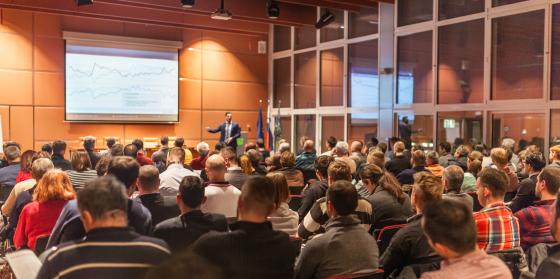National regulatory authorities (NRAs) have a key role to play in ensuring that each European country meets its targets for energy markets and implements the relevant EU regulatory policy.
In order to maintain the proper functioning of the single European market in gas and electricity, ACER supports NRAs in performing their regulatory function at European level and coordinates their contributions.
The key role of NRAs
Documents
ACER Working Groups are established based on a Director's Decision and can advise on the Agency's regulatory activities. They are composed of representatives from ACER, from NRAs, and from the European Commission.
To facilitate knowledge sharing and support the NRAs in the implementation of REMIT, ACER has established dedicated working groups, committees and task forces:
The ACER REMIT Committee (ARC) convenes on a quarterly basis.
There are currently two REMIT task forces reporting to the ARC. Task forces (TF) are informal, ad hoc groups, set up by the ACER Working Groups Chairs to provide expert support on specific topics.
Provides guidance to the NRAs on the application of REMIT policies and monitors the NRAs' progress. Convenes approx. five times a year.
The following committees report to the ARC:
Focuses on the analysis of REMIT data collected via the data reporting process and the improvement of data quality. The MD SC convenes on a quarterly basis.
Focuses on the efficient integration of market coupling data in the data reporting process. The MC PT convenes virtually on a biweekly basis.
Provides a forum to debate the application of REMIT to specific market abuse cases, on the surveillance of wholesale energy markets and the coordination on REMIT cases. Convenes approx. 5 times per year.
Provides support, advice and coordination on the definition and implementation of ACER's REMIT information security policy. Convenes on a quarterly basis and carries out, upon request, ad hoc peer reviews of NRAs' compliance with the policy.
- ARIS NRA User Group (ANUG)
Provides support to the end users of ACER's REMIT Information System (ARIS). Convenes virtually on a bimonthly basis.
ACER-NRA groups, committees and task forces
See Also

 .
. 





